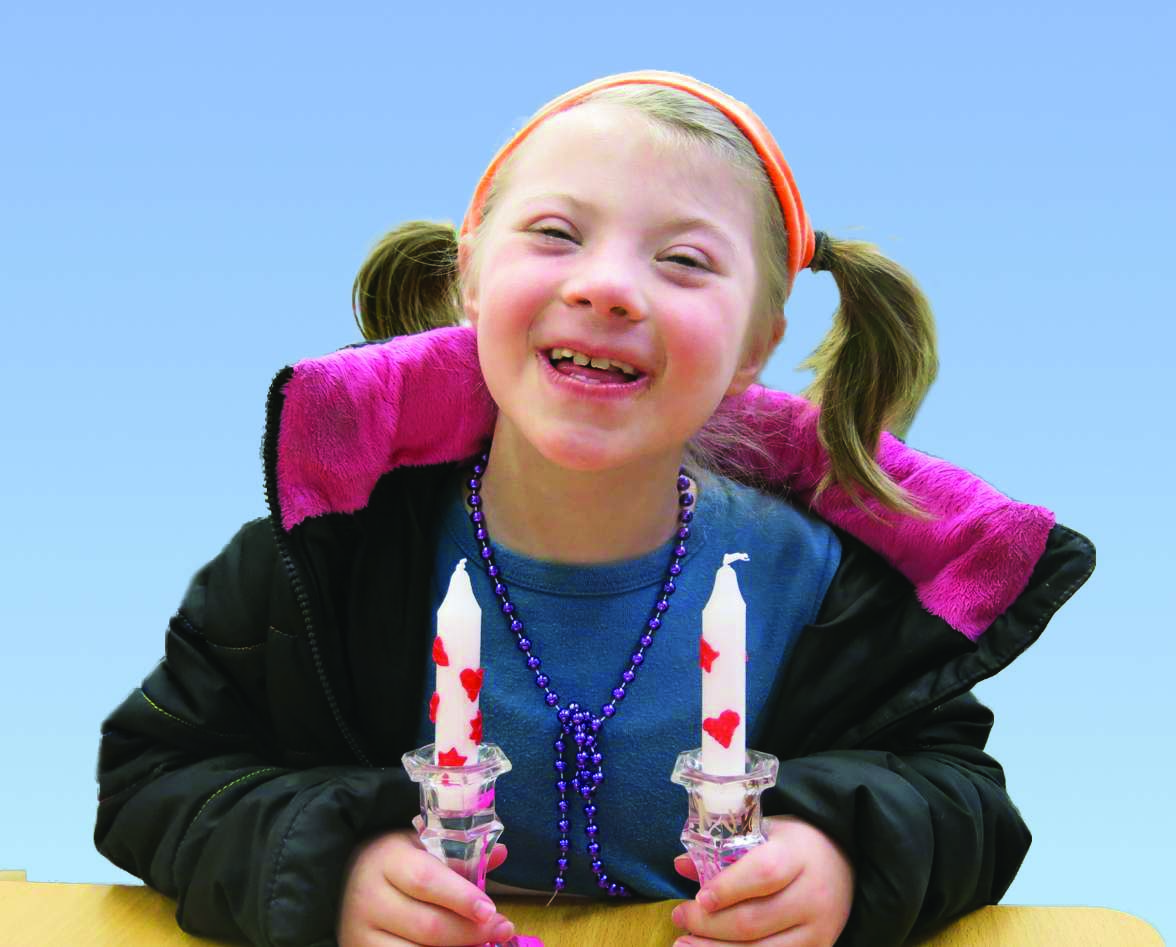-
30 January 2015

Here are three ways to Make It Yours this week:
- Read Rabbi Jonathan Sacks’ article commemorating International Holocaust Remembrance Day and the 70th Anniversary of the Liberation of Auschwitz-Birkenau.
- Celebrate The Art of Jewish Food with JCCNV and the Jewish Food Experience at cultural and culinary events throughout the month.
- Join us for The Network Event, a memorable evening of networking, desserts and a special presentation with ESPN’s Mike Greenberg of Mike and Mike on Thursday, February 26.
Let’s talk about…inclusion.
There is one thing we want more than anything else: to be included. Welcomed, embraced, loved. To feel a part of family and community.
Inclusion is more than a slogan. It is the fulfillment of a basic human need to be cared for and counted. Inclusion is both noble and necessary.
February is Jewish Disability Awareness Month — a time when we stand united as a Jewish community to reflect on all that we are doing – and not yet doing – to help those who are excluded feel welcomed and rededicate ourselves to foster a more inclusive Jewish community that emphasizes the value, dignity and capabilities of every individual.
I’ve had a lifelong hearing loss. I don’t dwell on it, in fact, I’ve spent over 50 years consciously minimizing its impact on who I am. A few years ago, I realized that if I was to “walk the talk” about creating truly welcoming Jewish communities, I had a responsibility to advocate for those who do not yet feel welcomed: newcomers, interfaith families, young adults, the LGBT community members and yes, individuals with disabilities.
The Torah tells us, “You shall not curse the deaf nor place a stumbling block before the blind; you shall fear your God – I am your Lord.” Doing these things will not be noticed by the blind or deaf person, hence the need to reference the fear of God. Our actions – or inactions – toward those with disabilities are subject to judgment by ourselves, the community, and according to the Torah, God. It is a succinct and eloquent statement demanding that we do everything possible to help those who are vulnerable.
Inclusion is more than simply building a ramp for wheelchair access, as important as that is. It is a mindset and an approach to communal life which takes into consideration the needs of a changing community. It is how we think about those around us. It is language. And most of all, it is action.
This month, we are taking action. On February 22, we invite you and your family to join us for a communal conversation about the future of disability inclusion. Next month, The Jewish Federation of Greater Washington is launching its Inclusion Advocacy Committee. We are convening community thought leaders and activists to advocate for – and assist in the creation of – a more welcoming, engaging and inclusive community. Our agenda is ambitious; our mission is to build an even stronger Jewish community.
This week’s parasha is about the very early stages of building what would become a Jewish community and people.
In parashat Beshalach (after leaving Egypt and escaping toward the Sea of Reeds) Moses gets his first taste of the challenges of leading the Israelites to freedom: “As Pharaoh drew near, the Israelites caught sight of the Egyptians advancing upon them. Greatly frightened, the Israelites cried out to the Lord. And they said to Moses, “Was it for want of graves in Egypt that you brought us to die in the wilderness? What have you done to us, taking us out of Egypt?”
Such questions! Such gratitude! Moses is instructed by God to hold his rod over the sea to split it, and you know the rest of the story. But this is only the first of a series of challenges by the recently-freed slaves to both Moses’ and God’s ability to keep them safe. Even the miracle of the crossing of the Sea doesn’t transform the Israelites into believers.
We have all heard stories of “life-transforming experiences”, and some of us may have even had one. The miracles of the plagues and the parting of the sea do not transform the Israelites – that comes over time, and even then is not a straight line progression. Rather, it is the strong leadership of Moses and the receiving of the Torah that create the construct within which faith emerges – but only when the people of Israel are ready.
Let’s proclaim our readiness to create a truly inclusive community.
Steven A. Rakitt, Chief Executive Officer
steve.rakitt@shalomdc.org
